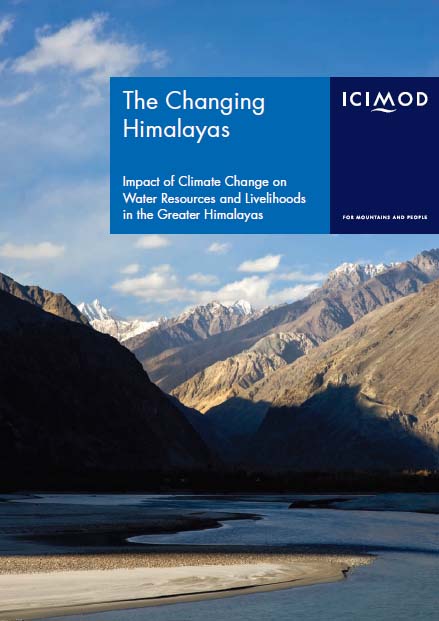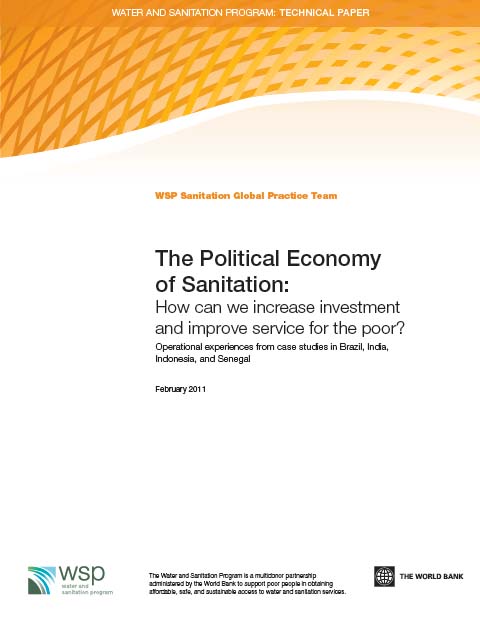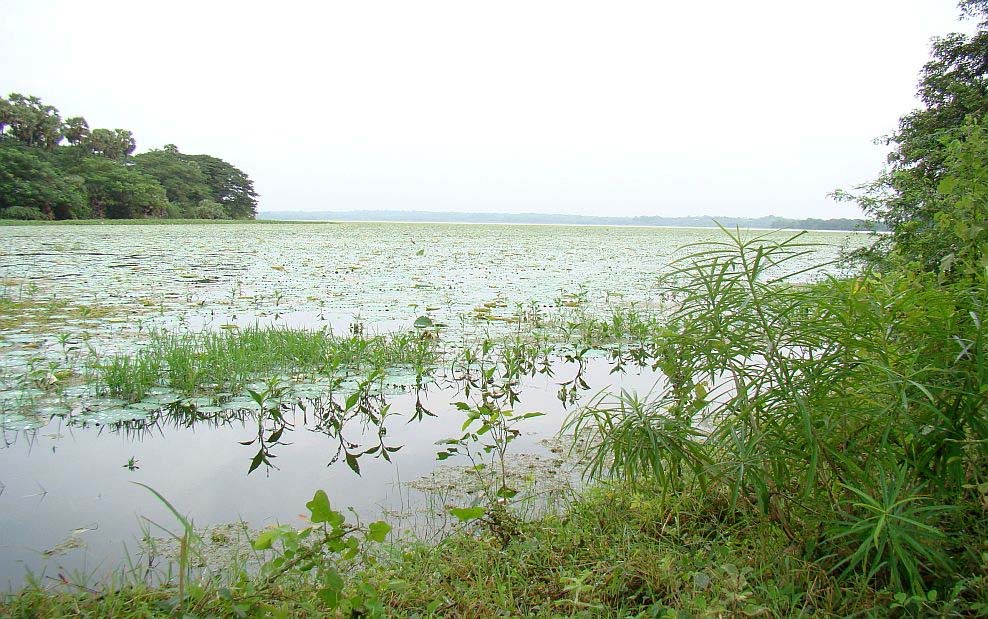/topics/water-management
Water Management
Troubled waters - Climate change, hydropolitics and transboundary resources – A report by TERI and The Henry L Stimson Center
Posted on 02 Aug, 2011 07:38 PMThis report is a part of Stimson’s Regional Voices: Transnational Challenges project and provides valuable cross-regional and multidisciplinary insights into the complex issues surrounding transboundary water resources and climate change. It examines the environmental dangers and policy dilemmas confronting the sustainable management of shared water resources in a warming world.
Sustainable Development Framework for the mining sector in India – A report by the Ministry of Mines
Posted on 29 Jul, 2011 01:03 PM It does this in light of the recommendations of the Anwarul Hoda Committee, a High Level Committee set up by the Planning Commission in 2005. The draft SDF prepared by ERM India Pvt. Ltd. for the Ministry of Mines was released recently for seeking public comments before its formal adoption. It presents a set of guiding principles for the mining sector in India, which aims at achieving resource efficiency, business viability and environment stewardship around development of affected communities.
It does this in light of the recommendations of the Anwarul Hoda Committee, a High Level Committee set up by the Planning Commission in 2005. The draft SDF prepared by ERM India Pvt. Ltd. for the Ministry of Mines was released recently for seeking public comments before its formal adoption. It presents a set of guiding principles for the mining sector in India, which aims at achieving resource efficiency, business viability and environment stewardship around development of affected communities.
Training program on ‘Domestic wastewater treatment & reuse’, Centre for Science and Environment, September 28 – October 1, 2011, New Delhi
Posted on 28 Jul, 2011 02:24 PMOrganizer: Centre for Science and Environment
Venue: Anil Agarwal Green College, Centre for Science and Environment 38, Tughlakabad Institutional Area, (Near Batra Hospital), New Delhi
The changing Himalayas - Impact of climate change on water resources and livelihoods in the Greater Himalayas – A report by ICIMOD
Posted on 27 Jul, 2011 09:56 PM The greater Himalayan region “the roof of the world” – contains the most extensive and rugged high altitude areas on Earth, and the largest areas covered by glaciers and permafrost outside the polar regions.
The greater Himalayan region “the roof of the world” – contains the most extensive and rugged high altitude areas on Earth, and the largest areas covered by glaciers and permafrost outside the polar regions.
A kalyani brought to life in Mulbagal, Karnataka: An Arghyam initiative
Posted on 27 Jul, 2011 05:58 PMGuest post by Manjunath Prasad
The sector programme and climate change initiatives in Uttarakhand
Posted on 27 Jul, 2011 02:54 PMRecent scientific studies show that global warming is already causing environmental changes that will have significant global economic and social impacts. As the world's 4th largest emitter of greenhouse gases, India has to juggle the imperative demand for economic development with pressures for greater efficiency in the use of energy.
Climate change is a change in the statistical properties of the climate system when considered over long periods of time, regardless of cause. Climate change reflects a change in the energy balance of the climate system, i.e. changes the relative balance between incoming solar radiation and outgoing infrared radiation from Earth. The threat emanates from accumulated green house gas emissions in the atmosphere, generated through long term and intensive industrial growth and high consumption life styles of developed countries.
The political economy of sanitation - How can we increase investment and improve service for the poor? – A report by Water and Sanitation Program
Posted on 26 Jul, 2011 02:53 PM This global study attempts systematically to understand and thus help practitioners manage the political economy of pro-poor sanitation investments and service provision.
This global study attempts systematically to understand and thus help practitioners manage the political economy of pro-poor sanitation investments and service provision.
It aims to provide practical advice to multi-lateral agencies and sanitation practitioners to help them better manage stakeholder relations and effectively maneuver within the complex institutional relationships of the sanitation sector in order to enhance the design, implementation, and effectiveness of operations that provide pro-poor sanitation investments and services. The ultimate goal is to improve health and hygiene outcomes.
This study follows current approaches to political economy - interdisciplinary inquiry drawing upon social and political theory and economic principles - to understand how political actors, institutions, and economic processes influence each other. This study’s conceptual framework combines a diagnostic component with a typology of actions to help translate analytical findings into more effective support to operations and investments.
Conservation of Ousteri lake in Puducherry - Draft Comprehensive Management Action Plan by SACON
Posted on 26 Jul, 2011 11:54 AM This Comprehensive Management Action Plan by the Salim Ali Centre for Ornithology and Natural History (SACON) deals with the various conservation and management interventions that can be taken up for long-term sustainability of Ousteri lake, the largest lake in Puducherry.
This Comprehensive Management Action Plan by the Salim Ali Centre for Ornithology and Natural History (SACON) deals with the various conservation and management interventions that can be taken up for long-term sustainability of Ousteri lake, the largest lake in Puducherry.
Wetlands in urban areas have always been exploited for several purposes due to anthropogenic activities. However, such activities may lead to alteration of wetland characteristics and thus cause changes in species composition and density. The Ousteri Lake (Oussudu Eri in Tamil) is rich in flora and fauna and is known to provide several ecological services including recharging underground aquifers and providing several livelihood options for the local community.
Kailash sacred landscape conservation initiative - Feasibility assessment report by ICIMOD
Posted on 25 Jul, 2011 03:19 PM This publication by International Centre for Integrated Mountain Development (ICIMOD) deals with Kailash Sacred Landscape Conservation Initiative (KSLCI), a project that seeks to conserve and sustainably manage a highly unique and special landscape through the application of trans-boundary ecosystem management approaches.
This publication by International Centre for Integrated Mountain Development (ICIMOD) deals with Kailash Sacred Landscape Conservation Initiative (KSLCI), a project that seeks to conserve and sustainably manage a highly unique and special landscape through the application of trans-boundary ecosystem management approaches.
This region, like much of the rest of the Hindu Kush-Himalayas, faces many challenges, not the least of which are global warming, globalisation and environmental degradation. The Kailash region is considered sacred to five major religions and to a large number of people in Asia and throughout the world. This area is historically, ecologically, and culturally interconnected and is the source of four of Asia’s most important rivers.
The KSLCI is an attempt on the part of the three neighbouring countries of India, China and Nepal to join hands to help preserve the unique biological diversity, the many ecosystem goods and services, and the value-based cultural heritage of one of the most revered and sacred landscapes in the world.
Fazilka citizens protest against planned encroachment on ecosensitive Badha lake wetland by Punjab Urban Development Authority (PUDA)
Posted on 21 Jul, 2011 04:16 PMForwarded to the portal by: Graduates Welfare Association, Fazilka







